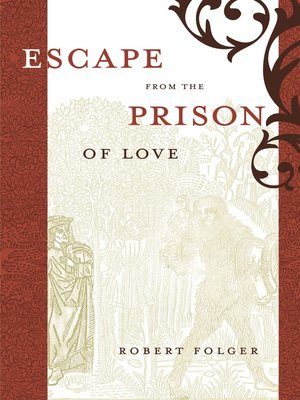Escape from the Prison of Love
ebook ∣ Caloric Identities and Writing Subjects in Fifteenth-Century Spain · North Carolina Studies in the Romance Languages and Literatures
By Robert Folger

Sign up to save your library
With an OverDrive account, you can save your favorite libraries for at-a-glance information about availability. Find out more about OverDrive accounts.
Find this title in Libby, the library reading app by OverDrive.



Search for a digital library with this title
Title found at these libraries:
| Library Name | Distance |
|---|---|
| Loading... |
Escape from the Prison of Love is an exploration of medieval modes of subject constitution and their transformation in fifteenth-century Spanish sentimental romance, with a particular focus on Diego de San Pedro's Cárcel de amor.
Drawing on premodern psychological models, Robert Folger argues that courtly self-fashioning through amatory performance provided an alternative and threat to the medieval gradual build-up of the self through hexis and habitus. In the light of the unsettling gender implications for the courtly lover, says Folger, the authors of sentimental fiction explored new ways of subject constitution based not on passionate attachment but on identification. Cárcel de amor shows how new forms of writing and reading techniques and authorship provided an avenue for a new notion of interiority that was essential to the Golden Age of Spanish literature.
Drawing on premodern psychological models, Robert Folger argues that courtly self-fashioning through amatory performance provided an alternative and threat to the medieval gradual build-up of the self through hexis and habitus. In the light of the unsettling gender implications for the courtly lover, says Folger, the authors of sentimental fiction explored new ways of subject constitution based not on passionate attachment but on identification. Cárcel de amor shows how new forms of writing and reading techniques and authorship provided an avenue for a new notion of interiority that was essential to the Golden Age of Spanish literature.







